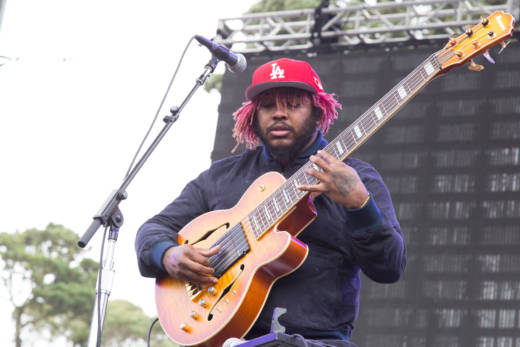When the Bay Area began sheltering in place in March, Robbie Kowal of HUSHconcerts was looking at a complete drop off in business. His company puts on thousands of silent disco events a year for music festivals, private parties and business conferences, and suddenly those were off the table indefinitely.
“We have no events, so there’s no industry. It’s tough, really tough,” he said at the time.
It turns out that Kowal’s expertise in sound engineering for wireless headphones and other unconventional setups was a saving grace for his business. In addition to doing sound via headphones for socially distanced weddings and SoulCycle classes, he’s producing drive-in concerts with promoter Hotbox at Burlingame’s Bayshore Drive-In, a golf course-turned-concert venue in the South Bay.
Drive-in concerts popped up in the Bay Area earlier this year, with Jerry Garcia tribute band Jerry’s Middle Finger entertaining car-bound crowds at Solano County Fairgrounds in July; additionally, ZZ Top, Van Halen and Tom Petty tribute bands rocked out at the Alameda County Fairgrounds, and Metallica broadcast a pre-taped show. But the Bayshore Drive-In shows are the first to target a young audience, with local nightlife outfits 1015 Folsom and Noise Pop coming on as co-presenters.
Bassist, singer and Kendrick Lamar collaborator Thundercat performs live at the Bayshore Drive-In on Oct. 22; Diplo-assisted, globally inspired EDM crew Major Lazer plays on Oct. 24; Shiba San and J.Phlip from house music label Dirtybird Records spin on Oct. 23. Pink Martini brings multi-lingual lounge and jazz on Oct. 25; Colors Worldwide DJs play R&B for the lovers out there on Oct. 29. And viral sensation Marc Rebillet performs his cheeky production wizardry on Halloween night and Nov. 1.


